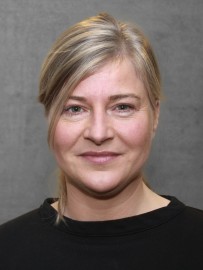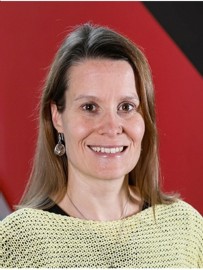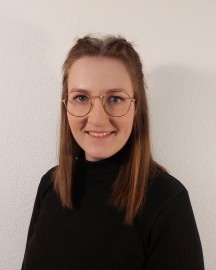DEEP-SRL aims at empowering primary school teachers to promote self-regulated learning skills (SRL) among diverse students in digital learning environments (DLE). In three sub-projects we explore 1) students’ variability in interacting with digital metacognitive prompts, 2) teachers’ attitudes and competences regarding the promotion of SRL in a DLE, and 3) opportunities of machine learning to assess students' SRL skills and to empower teachers to adapt SRL-supports to students’ individual needs.
Supporting Self-Regulated Learning (SRL) in Diverse Digital Classrooms
Background
Learning in DLEs opens up new opportunities for individualised learning, but also places high demands on students' SRL skills. Research shows that younger and struggling learners do not always benefit from learning in DLEs because they lack the necessary SRL skills (Azevedo, 2005). Unfortunately, the high importance of SRL skills for learning in DLEs may also engender inequity for students from disadvantaged socio-economic and academic backgrounds. However, research also suggests that disadvantaged students may catch up when supported in their SRL skills (Guo et al., 2022). Digital technologies offer numerous opportunities to support SRL which have been shown to improve learning outcomes (Prasse et al., 2024). But not all students benefit from SRL supports and such supports are more effective when they are adaptive to students' individual needs (Wong et al., 2019). More research is needed on which specific learner characteristics influence the way students perceive and use digital SRL supports, and how this might inform the development of adaptive SRL support designs.
Teachers also play an important role in tailoring the instructional design of a DLE towards learners with differing abilities, but we know little about how primary school teachers use digital technologies to promote SRL for different learners. Research shows that teachers generally integrate little SRL support into their classroom practice often due to limited competence (Karlen et al., 2020). This may be even more pronounced in DLEs. Here, learning analytics dashboards could assist teachers to better monitor their students' SRL and to provide individualised support. However, the use of new methods (e.g., machine learning) for the assessment and support of SRL at primary school level is complex and involves ethical considerations. Moreover, we need to better understand how teachers’ beliefs and competences influence their interaction with such SRL supports (Molenaar, 2022).
Research Design & Outlook
Therefore, the goal of the DEEP-SRL project is to empower teachers to design DLEs that promote SRL skills in primary school students of diverse competencies and motivational orientations. This will be explored in three subprojects:
(1) DEEP-SRL Student investigates how students' different abilities and motivational orientations influence their interaction with digital metacognitive prompts and students’ metacognitive monitoring, and explores factors for effective adaptive SRL support. In a mixed-methods intervention, 35 classes (5th grade) will work on a cross-curricular project addressing information literacy and multiple text comprehension in a DLE.
(2) DEEP-SRL Teacher investigates teachers’ attitudes and competences for promoting SRL in DLEs, their professional development in designing SRL supports as well as their perception and use of an interactive SRL dashboard developed in subproject 3. We will conduct an in-depth mixed-methods interview study with two samples of teachers.
(3) DEEP-SRL Learning Analytics investigates how learning analytics (e.g., machine learning) can support SRL assessment and promotion. We aim to build profiles of students’ SRL behaviour from trace data (from subproject 1) and will develop and evaluate an interactive SRL dashboard for teachers (with subproject 2) .
The contribution of our project is twofold. First, it will substantially augment the theoretical discourse surrounding primary school students’ SRL in DLE and enlighten the role of teachers and technology in promoting students’ SRL skills. This knowledge can inform teacher education and training. Second, based on our insights into the underlying conditions for adaptive SRL promotion in DLEs, we will develop an interactive SRL dashboard that supports teachers in adapting their SRL support to specific teaching contexts and the diverse needs of their students.
Literature
Azevedo, R. (2005). Using hypermedia as a metacognitive tool for enhancing student learning? The role of self-regulated learning. Educational psychologist, 40(4), 199–209. https://doi.org/10.1207/s15326985ep4004_2
Guo, J., King, R. B., Ding, Q., & Fan, M. (2022). Measuring and Promoting Self-Regulation for Equity and Quality of Online Learning: New Evidence from a Multi-Institutional Survey during COVID-19. Education Sciences, 12(7), 465. https://doi.org/10.3390/educsci12070465
Karlen, Y., Hertel, S., & Hirt, C. N. (2020). Teachers’ Professional Competences in Self-Regulated Learning: An Approach to Integrate Teachers’ Competences as Self-Regulated Learners and as Agents of Self-Regulated Learning in a Holistic Manner. Frontiers in Education, 5, 159. https://doi.org/10.3389/feduc.2020.00159
Molenaar, I. (2022). Towards hybrid human-AI learning technologies. European Journal of Education, 57(4), 632–645. https://doi.org/10.1111/ejed.12527
Prasse, D., Webb, M., Deschênes, M., Parent, S., Aeschlimann, F., Goda, Y., Yamada, M., & Raynault, A. (2024). Challenges in Promoting Self-Regulated Learning in Technology Supported Learning Environments: An Umbrella Review of Systematic Reviews and Meta-Analyses. Technology, Knowledge and Learning. https://doi.org/10.1007/s10758-024-09772-z
Wong, J., Baars, M., Davis, D., Van Der Zee, T., Houben, G.-J., & Paas, F. (2018). Supporting Self-Regulated Learning in Online Learning Environments and MOOCs: A Systematic Review. International Journal of Human–Computer Interaction, 35(4–5), 356–373. https://doi.org/10.1080/10447318.2018.1543084

Kostas received his M.Sc in Educational Technology from the University of Saarland in Germany and his PhD in Information and Communication Technologies from Pompeu Fabra University in Spain. Prior to his studies abroad, Konstantinos received a teaching diploma as a primary school teacher from the University of Thessaly in Greece. He worked as postdoctoral researcher at the Insitute of Education, University of Zurich on projects related to a mobile portfolio app for teaching internships, teachers' data literacy and learning analytics for school teachers.








